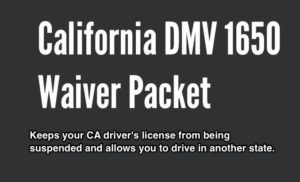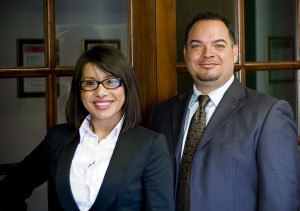California DUIs and out of state alcohol classes
California DUIs and out of state alcohol classes
California DUIs and out of state alcohol classes create a special problem. If you were convicted of a DUI in California, Vehicle Code §23556 requires the court to order the completion of a California alcohol program in the driver’s county of residence or employment.
However, if you move out of state, you have a problem with both the court and the DMV. This article discusses what happens when a California resident, who holds a California driver’s license, and gets a California DUI, moves out of state before completing the required alcohol school. It is different from the situation where someone from California gets a DUI in another state. In short, the court will allow an alcohol school in another state, but the DMV will require a California school or alcohol program, or for you to give up your CA driver’s license.
Court DUI Sentences and DUI schools out of county or state:
With the court, the court must specifically authorize, and order as part of your case, an out of county, or out of state, alcohol school. In general, the court will allow any program that is the equivalent of a first time offender’s program in whatever state you are in, if you have a first-time offense, and a second time offender’s alcohol program if you have a second time DUI case, and so on. That may mean that you attend a class that is substantially cheaper and less time than California, or more expensive and a longer program than California’s.
The DMV and DUI schools out of county or state:
With the DMV, you have a more difficult problem. So long as you live in California, the California DMV will never accept completion of an alcohol class from another state. The class must be taken in California even if the court accepted an out-of-state program in satisfaction of probation.
You have two options:
- Remain in California and complete the alcohol classes, or
- Move to another state and waive your “privilege” to drive in California.
Vehicle Code §23558(c)(1) allows the court to revoke probation for failure to complete the program except for good cause. Vehicle Code §13352(a)(2) refers to this Vehicle Code §23538 program, i.e. one in the person’s county of residence or employment, and requires that it be completed before full driving privileges can be returned. Punishment statutes for other drunk driving offenses have similar provisions. Obviously, none of this is possible if the person resides in another state since there are no California licensed drinking driver programs outside the state of California.
Where you must attend DUI schools in California:
Because of that, Health & Safety Code §11837.2(a) indicates that the court may refer persons only to licensed programs. Subject to these provisions, a person is eligible to participate in the program if it is operating in any of the following:
- The county where the person is convicted, or
- The county where the person resides, or
- A county that has an agreement with such person’s county of residence pursuant to Section 11838, or
- A county to which the person may request transfer pursuant to subdivision (d).
What do you do if you have a California Driver’s License but live out of state?
The law does not require impossibilities (Civil Code §3531). If a person resides in another state if they cannot attend a licensed California drinking driver program unless they interrupt their lives and move back to California. But with California DUIs and out of state alcohol classes, that rarely happens.
If you have a California DUI and you live out of state now, you may find that your license is suspended by the California DMV and will continue to be suspended until you complete a California alcohol school.
However, that suspension of your driver’s license may prevent you from getting a new driver’s license in another state, as other states that are part of the interstate driver’s compact will obtain the records from the California DMV, and will not issue you a new license in your new state until California lifts the hold.
That creates a driver’s license “Catch-22”. The solution is to apply to the DMV for an out of state waiver.
Applying for a CA DMV License Waiver
You must take action yourself on this. Your California DUI attorney, unfortunately, cannot do this for you. If you move out-of-state, you can call DMV Mandatory Actions Unit in Sacramento, California, at (916) 657-6525 and ask for a “1650 waiver packet.”
They can mail this packet to you, the licensee, at an out-of-state address (you will also have to prove you live out-of-state with a utility bill or such). You can also fill out the form online at: https://www.dmv.ca.gov/portal/wcm/connect/5f0117d6-0369-494b-b7da-8b14d42c5311/DL4006.pdf.pdf?MOD=AJPERES&CVID=
This waiver allows out-of-state licensees to obtain a license in another state, by lifting driver’s license holds, and also allows you to drive in California, but does not allow the out-of-state licensee to acquire a California license within 3 years of filing the waiver.
One can only qualify for the 1650 waiver once in a lifetime – a rule that began in March of 2005. The 1650 Waiver removes the California hold, assuming an SR22 is also on file with DMV. If you come back to California within 3-years and want your license back, you will have to take the applicable approved California Alcohol school program, or classes. California DUIs and out of state alcohol classes do not work for the DMV lifting the hold.
Contact our DUI defense firm if you need our experience.
We are happy to apply our education, training, and experience in handling Orange County DUI cases over 25+ years to win cases.
Contact our firm if you are interested in discussing with us what is possible at the DMV or in court.




